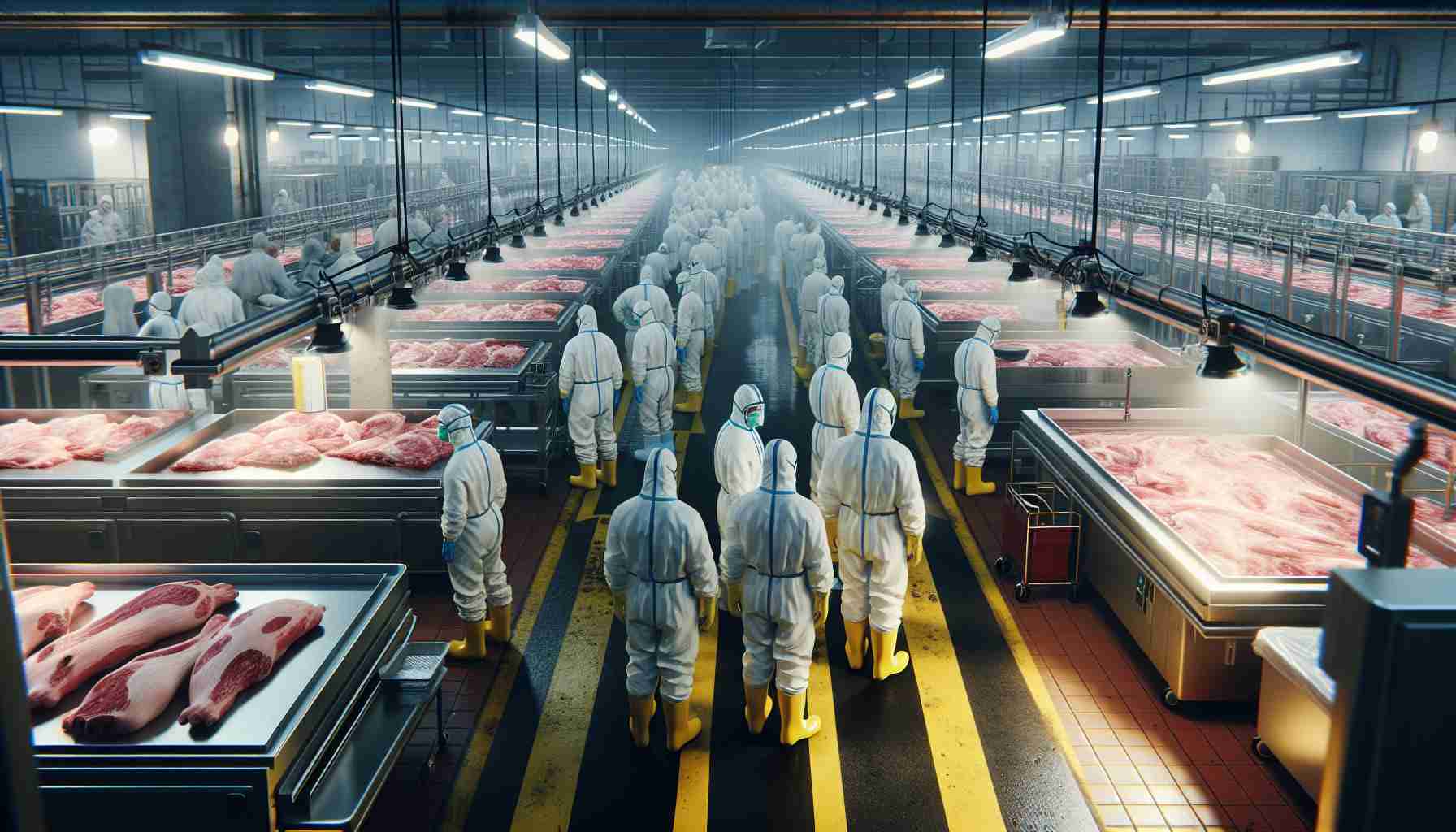Pandemic Fallout in Germany’s Meat Sector
The meat processing giant Tönnies in Ostwestfalen experienced a significant COVID-19 outbreak that raised alarms more than four years ago. In the summer of 2020, a surge in infections forced the Rheda-Wiedenbrück-based company to place numerous employees under quarantine, all while ensuring that they continued to receive their salaries.
This swift action highlighted the challenges faced by the meat industry in maintaining health safety standards. In response to the crisis, the local government did not sit idly by; they imposed stricter regulations on the operations of Tönnies in an attempt to control the situation and protect public health.
As the pandemic unfolded, this incident drew attention not only to the meat processing sector’s labor practices but also to the broader implications of workplace safety amid a global health crisis. The efforts made by both the company and local authorities underscored the urgent need for enhanced safety measures in industries where close contact among workers is inevitable.
This episode remains a critical case study on managing health risks in high-density work environments, illustrating the ongoing challenges that industries continue to face even years after the initial outbreak.
The Meat Industry’s Ongoing Resurrection: Lessons from Germany
The COVID-19 pandemic has profoundly impacted the meat processing industry, particularly in Germany, where major firms like Tönnies faced scrutiny due to health outbreaks. These events not only exposed vulnerabilities within the sector but also set the stage for significant reforms in workplace health safety protocols.
Innovations in Meat Processing Safety
As a result of the pandemic, the meat industry is adopting advanced technologies to enhance safety and efficiency. Smart processing systems, which incorporate automation and AI monitoring, help minimize human contact and improve hygiene standards. For instance, implementing contactless systems for meat handling has become a priority, reducing the risk of contamination.
Trends in Employment Practices
The pandemic shed light on the working conditions of employees in meat processing facilities. Tönnies and other companies now face increased pressure to ensure fair treatment of workers. This includes providing enhanced health benefits, job security, and improved working conditions. The need for transparent labor practices is more crucial than ever, which can potentially lead to legislative changes in labor laws across the industry.
Sustainability Initiatives
With rising concerns over the environmental impact of meat production, many companies are embracing sustainability initiatives. This includes sourcing local materials, reducing waste, and improving animal welfare standards. Transitioning to more sustainable practices not only addresses environmental concerns but also aligns with the growing consumer demand for ethically produced food.
Market Analysis: Shifting Consumer Preferences
Consumer preferences are evolving, impacted by health and sustainability issues. The demand for plant-based alternatives and sustainably sourced meats is on the rise. This shift has led to a diversification in product offerings, as companies adapt to meet changing consumer interests.
Limitations and Challenges
Despite the positive trend towards reform and innovation, the meat sector still encounters significant challenges. Logistics of large-scale processing, resistance to change within traditional practices, and the need for substantial investment in new technologies can hinder progress. Striking a balance between efficiency and safety remains a complex issue that companies must navigate.
Pricing and Economic Implications
As meat processors invest in health safety and sustainability, costs may increase, leading to potential fluctuations in meat pricing. Companies must carefully consider their pricing strategies, as consumers are likely to react to any substantial hikes, especially in an economically challenging climate.
Security Aspects and Cyber Resilience
The adoption of smart technologies raises important cybersecurity concerns. Meat processing facilities must safeguard their operations against potential cyber threats while ensuring the integrity of data used in monitoring health standards and production processes. Thus, enhancing cyber resilience within the industry is crucial.
Predictions for the Future
Looking ahead, the meat industry is likely to see ongoing transformation propelled by technological advancements, regulatory changes, and shifting consumer behaviors. The emphasis on health, safety, and sustainability will continue to shape operational strategies and market positioning in the coming years.
In summary, the pandemic has catalyzed significant changes within Germany’s meat sector. As companies like Tönnies respond to challenges related to health safety, workforce conditions, and environmental sustainability, the future of meat processing may see a more responsive and responsible industry framework. For more insights into industrial health safety trends, visit example.com.
